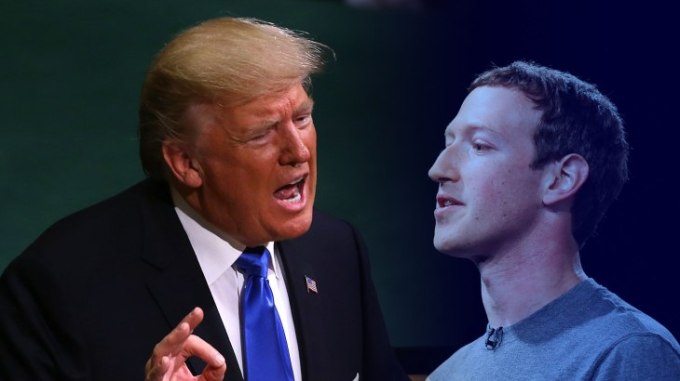Hey everyone. Thank you for welcoming me into you inbox yet again.
Last week was a short one, but I talked about the merger of a couple of the worst adtech companies in the world.
If you’re reading this on the TechCrunch site, you can get this in your inbox here, and follow my tweets here.
I would also like to take the time to say screw you to Apple for shipping such an awful keyboard that made typing this newsletter so damn difficult…. God! Now, onto the news.
The big story
One thing I rarely cover these days is the smart home, this, despite my apartment hosting two HomePods, two Echos, three Google Home devices and a Facebook Portal+.
I’m dying for this stuff to be useful and fun, and, instead, after a few years of playing with the stuff, I just have a handful of commands that I shout out every so often. All of my digital friends can turn on my lights, turn on my TV, play music, tell me the time and weather and a few other things that probably weren’t worth the thousands of dollars it took to bring them and their accompanying IoT gadgets into my home.
In short, I’m an idiot. On Tuesday, Google will again show off its Pixel 4 smartphone but also its latest visions for the Google Home/Nest line.
I’ve witnessed a few improvements since the first Google Home was announced nearly 3 years ago. After several hardware iterations from Google, Amazon and Facebook, these devices have gotten better looks, better sound and better voices — occasionally courtesy of celebrity partnerships. These devices are growing more capable in distinguishing user voices and offering feedback based on their individual data.
At the same time, home virtual assistants still feel awfully alien and firmly stuck in the 1.0 era.
The Google Home still feels like a flip phone with its basic set of stock apps. Third-party integrations are sparse and largely useless. Plenty of things are “possible” through smart home integrations, but every added set of rails turns the device into a Swiss army knife, rather than a “new computing platform.” Google has seemingly had to reorganize some of its devices around IoT with its Nest renaming just to give them a more cohesive mission.
This is partially an AI problem, but it seems like that element is overplayed when considering long-term potential. Saying a device should “just know” what to say is hardly a suggestion and there isn’t enough context in the world for a virtual assistant to annoy me less with unheeded guidance or advice. There’s just such a narrow runway for success in using these devices as predictive engines, something that severely impedes their potential as commerce or ad platforms. Even adding a screen has failed to help this along.
This isn’t a shot at Google any more than it is against Amazon, Facebook and Apple. The only reason I give Google shit here is because I generally like their products the most. The Home boasts by far the most intelligent assistant in my experience; I am still shocked by some of the answers it can pull out of its hat that are leaps and bounds past my HomePod’s Siri capabilities.
But that still isn’t enough.
I want to be bullish on these devices and voice interfaces as a platform, but they are so painfully unimpressive after several years even as natural language processing has made impressive advances. They are great to demo and are fun to play with but I can’t help but wonder whether this is just an endless march towards further marginal utility, not “the future.”
I will be watching to see what Google releases, my colleague Brian has summed up some of his expectations for the Pixel event.
Send me feedback
on Twitter @lucasmtny or email
lucas@techcrunch.com
On to the rest of the week’s news.
Trends of the week
Here are a few big news items from big companies, with green links to all the sweet, sweet added context:
- Apple pulls HKMap from App Store
Apple has found itself smack dab in the middle of a PR crisis that’s pissing off pretty much everybody. Apple’s app store approval, rejection, approval and seemingly final rejection of HKMap has been quite the saga.
- Playstation 5 is coming Holiday 2020
Sony has been teasing little dribbles of its next-generation console, but we at least have some idea of when its coming as well as a few of its distinguishing features.
- The Catalina wine mixer
This release seems to be pretty meh overall, but there are some decent additions like Sidecar, which my colleague Brian Heater is still psyched about in his full review of the new OS update.

(Photo by David Ramos/Getty Images)
GAFA Gaffes
How did the top tech companies screw up this week? This clearly needs its own section, in order of badness:
- Facebook is very chill with advertising political lies:
[Facebook sure does love free $peech]
- Apple has long complied with local governments, but it couldn’t seem to make up its mind on this one:
[Apple pulls HKMap from App Store the day after Chinese state media criticized its ‘unwise and reckless decision’ to approve it]
What to expect from Google’s hardware event
Sign up for more newsletters in your inbox (including this one) here.





